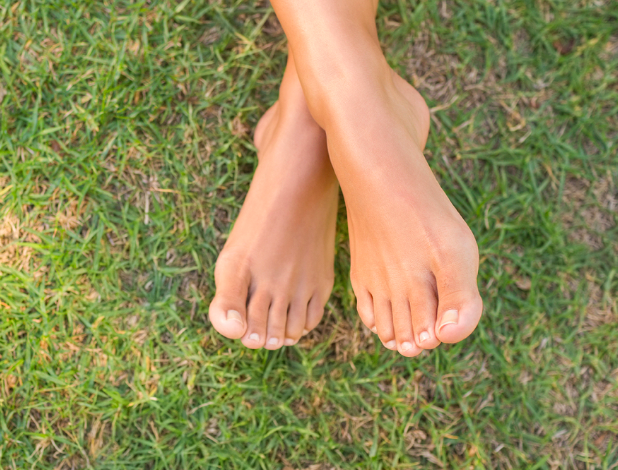
Earthing is a technique (if you want to call it that—in the not too distant past it would have just been called “walking”) where a person walks barefoot on the earth, allowing the energy of the earth to harmonize the systems of the body. The incredible effects of earthing have been well-documented in dozens of studies ranging from heart disease to Alzheimer’s disease. This healing effect is due to the continual flow of electrons moving up through the earth’s surface, which flow into the body most readily through direct skin contact with the ground. What makes electrons so healing is their negative electrical charge, whereas most free radicals have a positive electrical charge (protons). An inflow of electrons into the body, then, has a similar affect as antioxidants, neutralizing the negative impact of protons, effectively protecting the body from harm caused by free radicals. Because most people spend the majority of their time either indoors, walking with rubber soled shoes, or in their car (which is insulated from the earth by rubber tires) the benefits of this natural phenomena are not being experienced.
A 2013 study on earthing, published in the Journal of Alternative and Complementary Medicine, showed that the simple technique of earthing effectively reduced blood viscosity, a major factor in heart disease. The study examined 10 adults after engaging in earthing for two hours a day. Blood samples revealed that earthing increased the electrical surface charge of red blood cells, thereby reducing viscosity in the blood. There is an abundance of research which demonstrates that earthing reduces inflammation in the body, enhances immune system functioning, improves sleep, and helps regulate the nervous system. In fact, just having contact with soil may contribute to increased immune system functioning and increased serotonin production in the brain.
Researchers from Bristol University, and the University College of London, looked at the effects that common bacteria found in soil had on neural activity. The study, published in 2007 in the “Journal of Neuroscience,” showed that a common strain of soil bacteria, Mycobacterium vaccae, increased the production of serotonin in the brains of mice. Simply by having skin contact with soil, the bacteria was absorbed into the bloodstream of the mice, increasing the production of the neurotransmitter in the brain. Byproducts of increased serotonin production include elevated mood, as well as increased immune system functioning. Moreover, because serotonin can be found in the gut, brain, blood, and nerves, increased production of the neurotransmitter can help regulate digestion, sleep patterns, and nervous system functioning.
In addition to the benefits of earthing, the hormones released into the air from plants have also been shown to have a similar positive effect on mental, emotional, and physical health. A popular practice in Japan known simply as “forest bathing,” involves going into the forest to absorb the beneficial chemicals released into the air from the tree. Researchers attribute the healing benefits of forest bathing to essential oils, such as a-pinene and limonene, both of which have antimicrobial and antibacterial properties. Studies on forest bathing show that just being around trees for a few hours can boost the immune system, improve mood, lower blood pressure, and improve nervous system functioning.
The healing effects of nature may sound too good to be true, until you remember that the human body evolved over millions of years in relationship to the natural world, and so of course our health and well-being would be deeply connected to the earth. It is only in the last few hundred years that we have begun insulating ourselves so thoroughly from our connection with the earth. The earth, however, is only one form of nourishment for the human body. To truly live in balance with mother nature is to consciously take your nourishment from all her sources.
